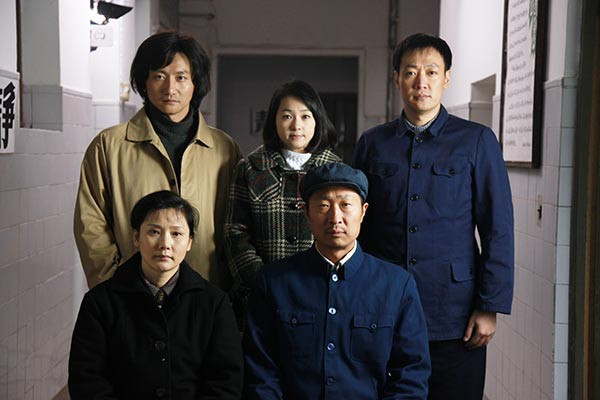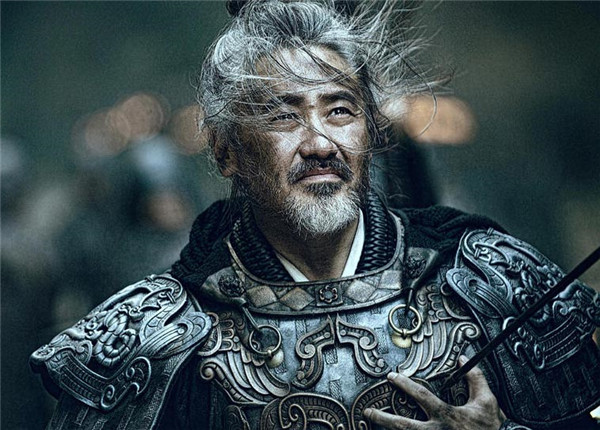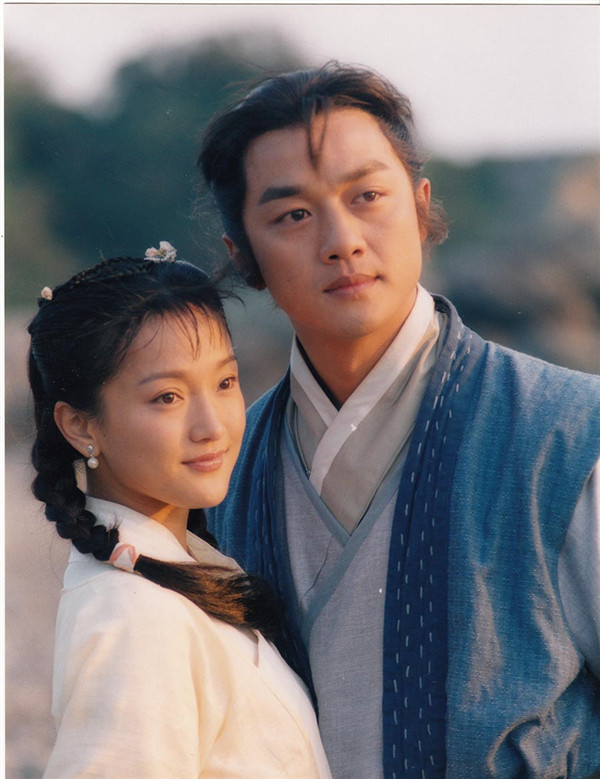A scene from Ode to Joy [Photo/Mtime]
Chinese television producers are finding that showing their wares online is a surefire way of attracting eyes and bringing in cash.
A television drama series centered on the lives of five women in the dog-eat-dog world of contemporary Shanghai has been an eyeopener for Dmitry Ivanov.
"Understanding Chinese women isn't easy. Ode to Joy has helped, giving me an insight into issues that young people, especially women, face in China," says Ivanov, 27, who has a Chinese girlfriend.
In fact the Russian software developer found the two-season, 97-episode drama so compelling that he has watched it, complete with English subtitles, twice online.
Ivanov, who says he regards Chinese dramas more as cultural lessons than as entertainment, plans to expand genres to look more at Chinese history. Next on his list is the 44-episode historical series Growling Tiger, Roaring Dragon, based on true stories of the third century politician Sima Yi.
Growling Tiger, Roaring Dragon, based on true stories of the third-century politician Sima Yi. [Photo/Mtime]
Ivanov's enthusiasm is typical of a new wave behind the growing popularity of Chinese television productions in recent years.
On popular video sites such as YouTube, Viki and DramaFever, hundreds of Chinese dramas with subtitles in foreign languages are attracting countless viewers whose comments range from admiration for the cast to discussion about plotlines.
China is one of the largest producers of television and online content, producing at least 400 dramas a year, with half of them being sold overseas, the Beijing news magazine Vista says.
In addition, at least 213 internet series were aired last year, five of them attracted more than 4 billion views, says a report issued recently by Chinese tech giant Tencent, proprietor of the social media app WeChat.
The State Administration of Press, Publication, Radio, Film and Television says that in China more than 1,600 domestic movies and television productions have been translated into 36 languages over recent years, including English, French, Russian, Spanish, Arabic and Portuguese, and they have been or are being aired in more than 100 countries.
Overseas markets have become a pivotal part of Chinese producers' business plans, as well as a significant platform to demonstrate the country's soft power, industry analysts say.
Growling Tiger, Roaring Dragon [Photo/Mtime]
China earned about $100 million selling domestic screen productions overseas last year, says You Xiaogang, head of Chinese Television Drama Production Industry Association.
"That figure is the mere equivalent to the revenue of two popular TV series in China. That means there is still huge potential for Chinese dramas and movies overseas."
You, himself a television drama producer, believes the expansion of Chinese imports will also bring opportunities in the age of the internet.
Video-streaming sites have much larger capacity and more options for viewers than do television channels, which face one obvious hindrance: the clock.
Top streaming sites in the United States are now extremely interested in Chinese content and are in talks with Chinese companies about distribution deals, You says.
"With the rise of new media, new chances have sprung up, and this will reshape the overseas sales of videos produced in China."
The Chinese online blockbuster drama Day and Night, which Netflix bought recently, is its first purchase of a Chinese internet drama. [Photo/Mtime]
The Chinese online blockbuster drama Day and Night, which Netflix bought recently - its first purchase of a Chinese internet drama - is emblematic of the changes that are now underway.
Made and released by videostreaming service Youku, which is owned by the internet giant Alibaba, the 32-episode detective drama centers on the twin brothers' efforts to clear the younger of the two on charges of murdering a family of five.
Since it debuted online on Aug 30 it has been viewed more than 4.5 billion times, Youku says. On China's most popular review site, douban.com, the drama racked up a score of up to 9 out of 10, while the Amazon-affiliated IMDb gave it 8.9 points out of 10.
One critic on IMDb called it "the Asian version of Sherlock Holmes with a shocking twist and turn". "With a tense and an absorbing plot, along with the superb performances the actors give, this drama is certainly a pleasure to watch."
Netflix plans to make the series available in its global market of 190-plus countries and regions. Xu Zhimin, assistant president of Youku, says the purchase is "an uplifting signal" for Chinese content makers.
"The quality of Chinese dramas has risen greatly over the past five years, and as a result they have won recognition in the international market."
A scene from Princess Agents, which set a record for YouTube views at nearly 3 billion. [Photo provided to China Daily]
The bulk of those who watch Chinese online video services are young people, most of them aficionados of hit television dramas made in the centers of the world film industry, such as the United States, the UK and South Korea, Xu says.
Demand by Chinese audiences for better quality productions has prompted domestic content-makers to act, including providing better storytelling and visual effects, while at the same time making some of the productions more attractive to overseas audiences, he says.
This shift in the market is taking place not only on broadcasting platforms, but also in genres of particular interest to foreign audiences.
Wei Lili, vice-president of Ciwen Media Group, says she has sensed the change over the past few decades. The Beijing-based Ciwen has produced a number of dramas sold overseas.
Sales of Chinese dramas abroad go back to the 1980s, when household TV series such as Journey to the West, a mythological tale about the Monkey King, were exported to Southeast Asia and Africa, she says.
The Proud Twins is one of the martial art dramas well received in Japan and South Korea [Photo provided to China Daily]
Streams of fine gold
In the early 2000s, martial arts dramas emerged as a major genre rated highly in China and elsewhere around the world, she says.
"The dramas adapted from bestselling novels by the prestigious wuxia authors Louis Cha and Gu Long were then greatly welcomed in Southeast Asia, whose culture and history are similar to China's."
Martial arts drama Legend of the Eagle Shooting Hero [Photo provided to China Daily]
For example, the Ciwen-produced martial arts dramas Legend of the Eagle Shooting Hero, The Proud Twins, Stories of the Wandering Hero and The Seven Swords were well received in Japan and South Korea.
As the Chinese economy has continued to boom over the past 10 years, more domestic series have been exported. Tales featuring modern China and the lifestyles of Chinese began to dominate ratings as foreign audiences wanted to know more about the changes that were unfolding in the country.
Happy Memories of the Ma's became the first Chinese series shown by Vietnam's leading broadcasters[Photo provided to China Daily]
Happy Memories of the Ma's, a 47-episode TV series chronicling the life of a Shanghai family between the 1970s and early 2000s, became the first Chinese series shown by Vietnam's leading broadcasters and beat other local shows to top the country's ratings when it was first aired in the country.
When fantasy or historical dramas based on influential online novels rose to become leading genres in China, they have also gained in popularity overseas.
After topping China's TV screen ratings and being watched 2 billion times online, the fantasy drama The Journey of Flower made a big impact in Japan, South Korea, Thailand and Vietnam.
The series, based on the online novel of the same title and starring pop stars Wallace Huo and Zhao Liying, centers on a bittersweet romance between an immortal master and his young disciple.

A scene from Princess Agents, which set a record for YouTube views at nearly 3 billion. [Photo provided to China Daily]
Another online sensation has been Princess Agents, about a sixth-century female slave's rise to become an influential military leader. It set a record for YouTube views at nearly 3 billion, making it the most-watched Chinese TV drama internationally. Plans are afoot for it to be translated into nine languages and broadcast in about 85 countries and regions.
"Overseas distribution is usually a long, time-consuming process," Wei says. "In the future, Chinese companies may work with foreign distributors before the shooting of a drama begins, which will leave more time for marketing. In addition, foreign actors can make stories more appealing to international audiences."
At the moment the biggest problem for foreign fans of Chinese dramas is the limited information about these productions.
Anne. J, the founder of Drama-Panda, an English-language website in Singapore that disseminates news and opinion about Chinese dramas, movies and celebrities, says most of its visitors are from the US. As its fan base has grown the website has been transformed from a personal blog to a thriving online community, she says.
"Costume dramas seem to be the biggest attraction. They range from fantasy pieces such as Ten Miles of Peach Blossoms to dramas such as Nirvana in Fire. I have noticed that these popular dramas in China tend to be similarly well-received by international viewers, especially if English subtitles are available. Princess Agents is a good example of that."























